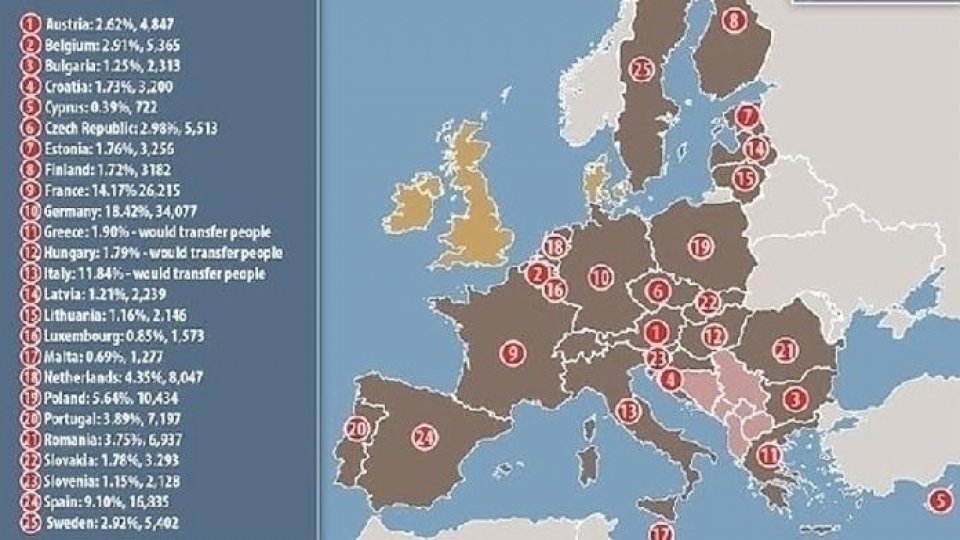The refugee crisis, seen from Bucharest
Romania pleaded in Brussels for voluntary refugee quotas.

Articol de Radio România Internaţional, 16 Septembrie 2015, 06:13
The EU countries on Monday failed to break a deadlock over sharing out responsibility for the huge number of refugees that have taken Europe by storm, thus sparking off the most serious crisis in the last seventy years.
The result of the emergency meeting of the EU interior ministers in Brussels was rather predictable given their different approach to the crisis and their vehement stand. In spite of the fact that the 28 ministers decided that 40,000 refugees from Italy and Greece would be relocated in the next two years, as it had been agreed upon in July, they could not reach an agreement on a proposal by the EU executive to relocate another 120,000 people who have recently come from the Middle East and Africa.
The European Commission pleads for mandatory national quotas, but some member states, including Romania, firmly stand against it.
Bucharest, in keeping with its initial commitment, is willing to take 1,705 asylum-seekers who are currently in Italy and Greece and another 80 people from outside the EU.
Attending Monday’s meeting in Brussels, Romanian Deputy Prime Minister and Interior Minister Gabriel Oprea, mandated by President Klaus Iohannis and Premier Victor Ponta, presented to his European counterparts Romania’s position on that matter. The head of state explained Romania’s stand on that issue, in a press conference held in Bucharest.
“If we agree to take migrants we should be aware that they are here to stay. If we accept them we must also take responsibility for them. These people need to be educated, to be taught the Romanian language, children must go to school and they must all be integrated into society”, president Klaus Iohannis said.
Romania’s offer to contribute to easing the refugee crisis is quite generous, President Iohannis says, and the countries who refuse mandatory quotas can show their solidarity in a different way.
For instance, Bucharest is currently contributing to strengthening the EU’s external borders and might provide, if need be, both personnel and expertise.
Moreover, unlike Greece, Italy, Austria, Germany and Hungary, Romania is not under the pressure of the refugees, as it has not joined the Schengen area yet.
“The Schengen area is not functional at the moment and this is a matter of concern for us. This issue will be discussed at the next meeting of the Higher Defence Council”, Klaus Iohannis said.
Summoned for September 17, Romania’s Higher Defense Council meeting will focus on the Schengen area issue and on Romania’s position in favor of voluntary refugee quotas.
Any decision the EU might take, which risks reopening the gap between the East and the West, would be a huge mistake in the Romanian officials’ opinion.














